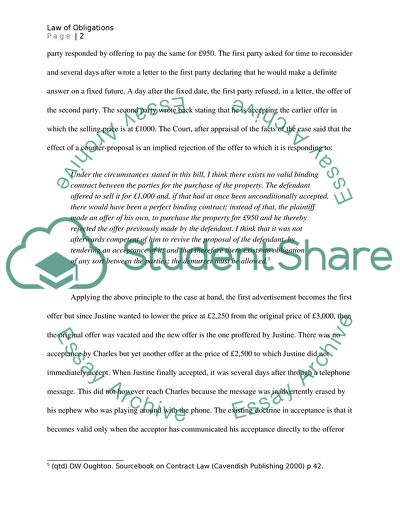Cite this document
(“Law of Obligation Essay Example | Topics and Well Written Essays - 3000 words”, n.d.)
Law of Obligation Essay Example | Topics and Well Written Essays - 3000 words. Retrieved from https://studentshare.org/miscellaneous/1550543-law-of-obligation
Law of Obligation Essay Example | Topics and Well Written Essays - 3000 words. Retrieved from https://studentshare.org/miscellaneous/1550543-law-of-obligation
(Law of Obligation Essay Example | Topics and Well Written Essays - 3000 Words)
Law of Obligation Essay Example | Topics and Well Written Essays - 3000 Words. https://studentshare.org/miscellaneous/1550543-law-of-obligation.
Law of Obligation Essay Example | Topics and Well Written Essays - 3000 Words. https://studentshare.org/miscellaneous/1550543-law-of-obligation.
“Law of Obligation Essay Example | Topics and Well Written Essays - 3000 Words”, n.d. https://studentshare.org/miscellaneous/1550543-law-of-obligation.


